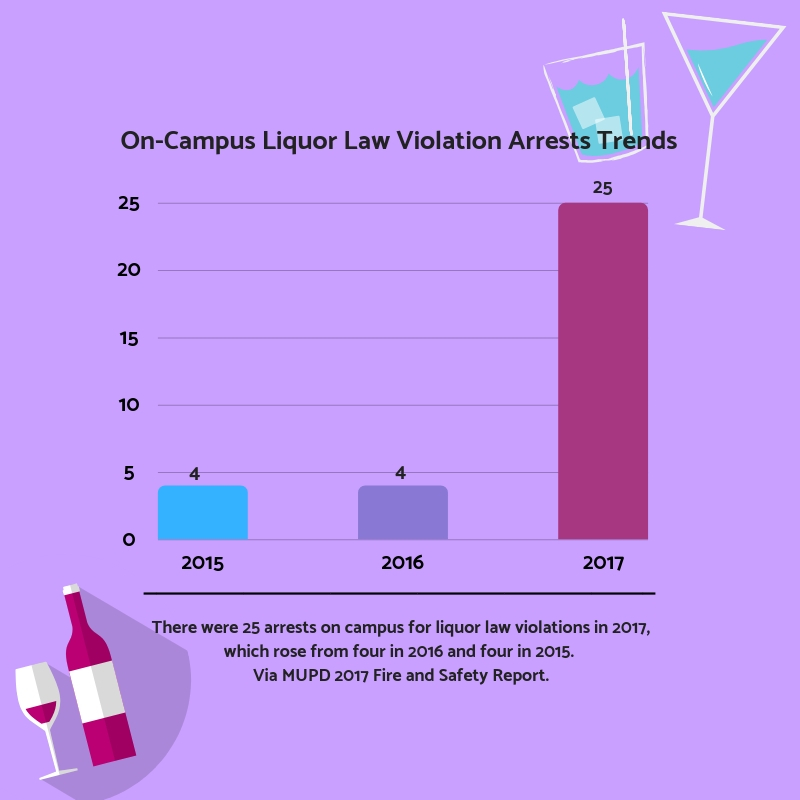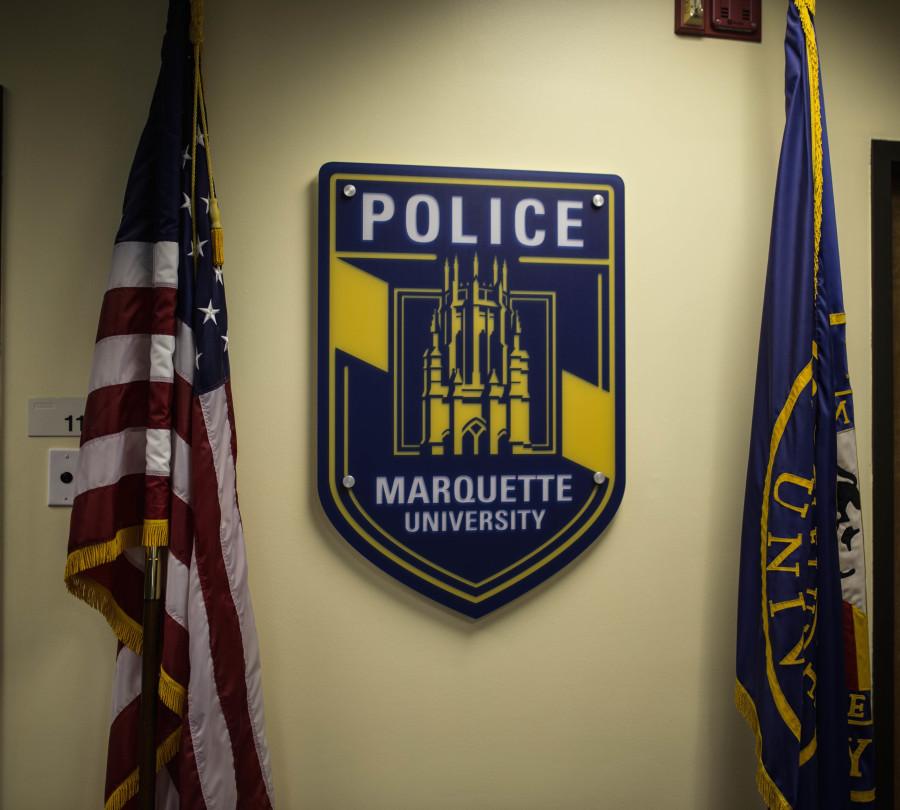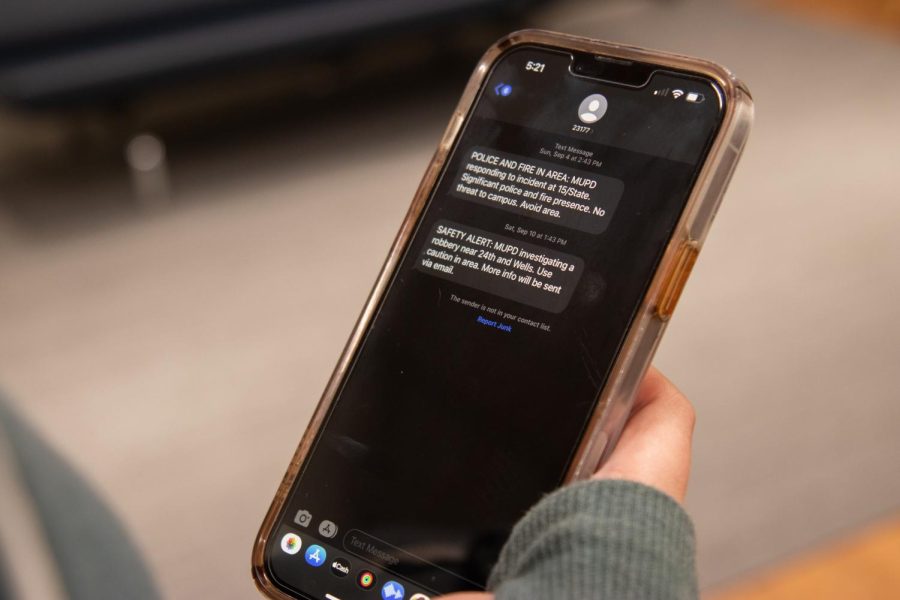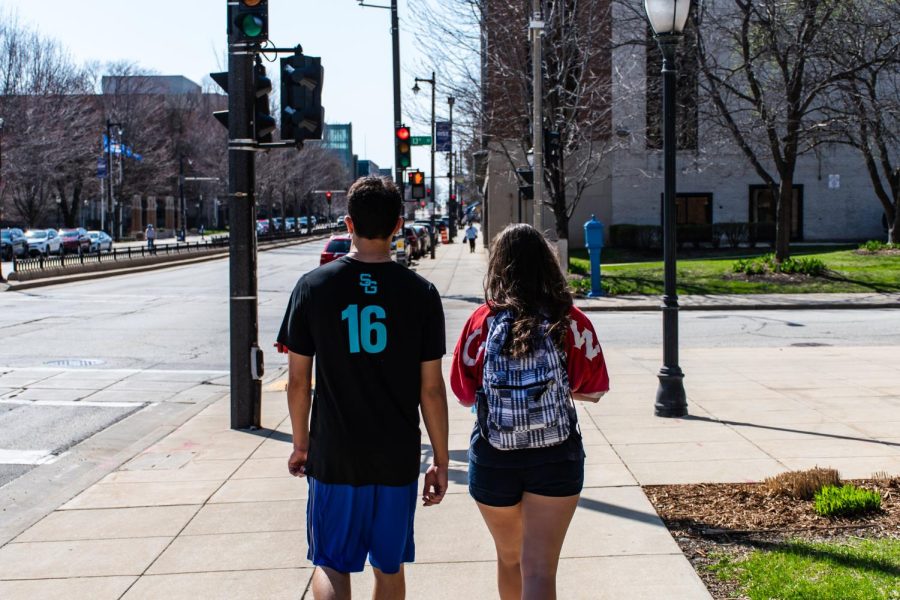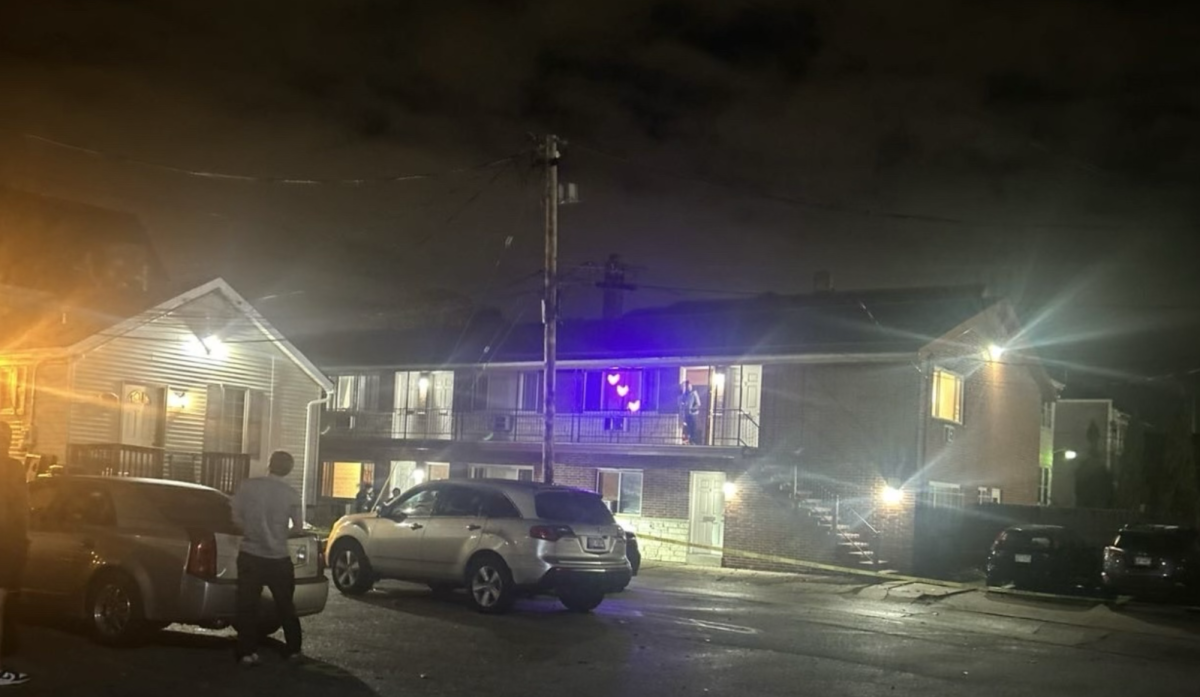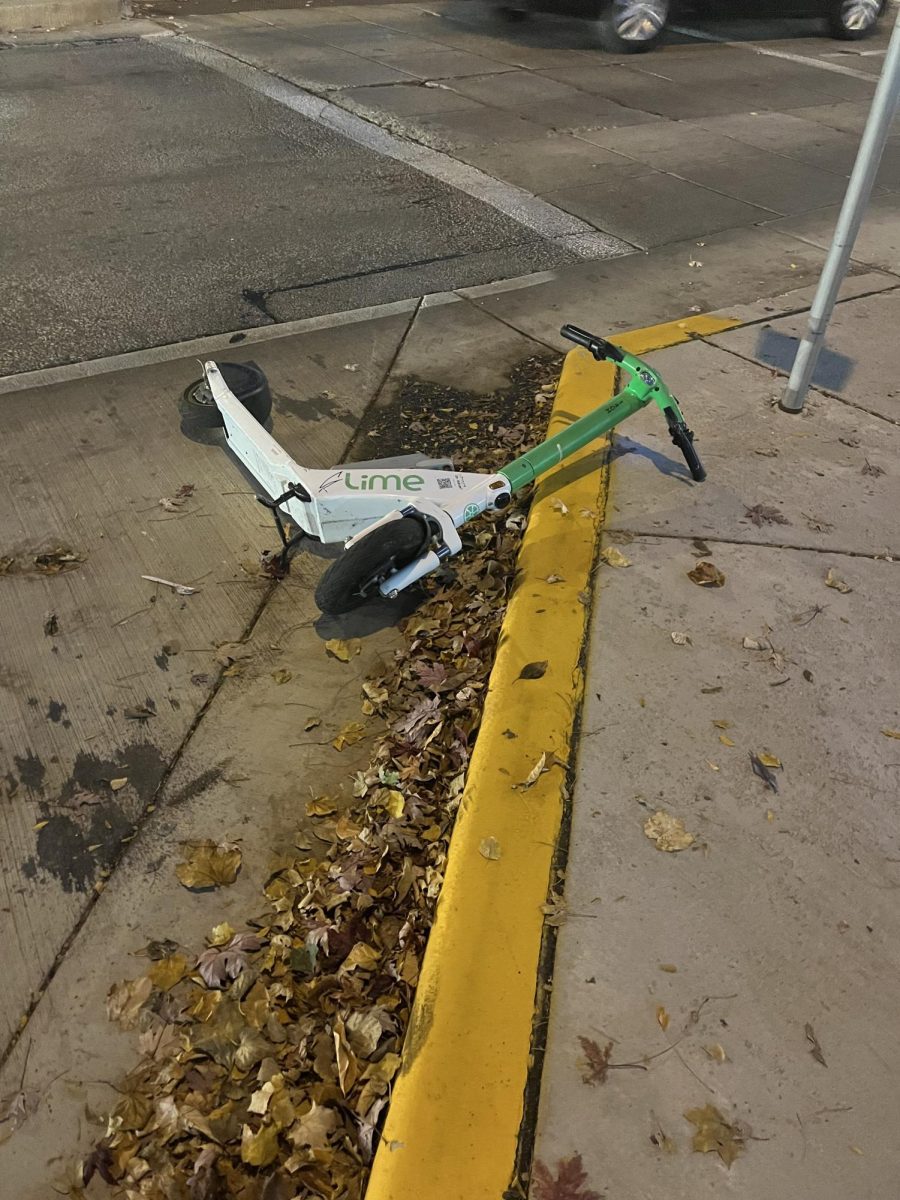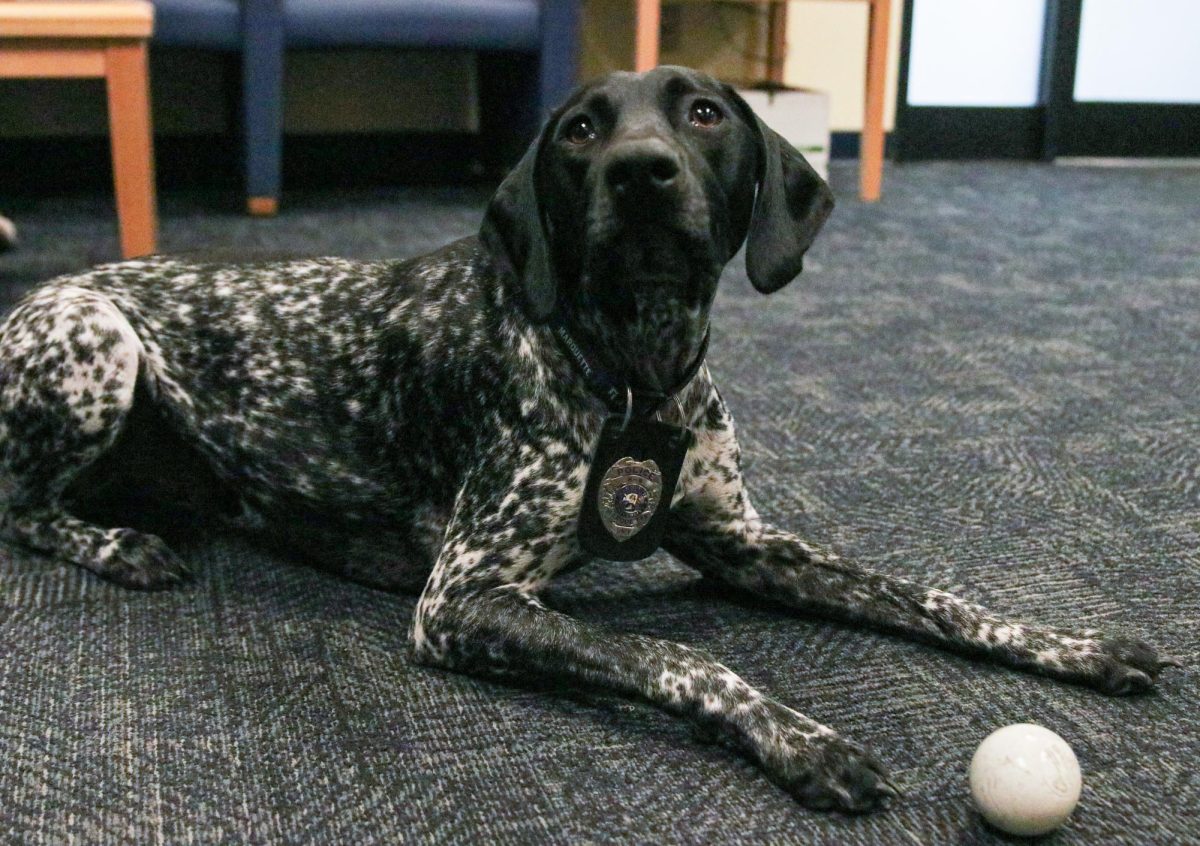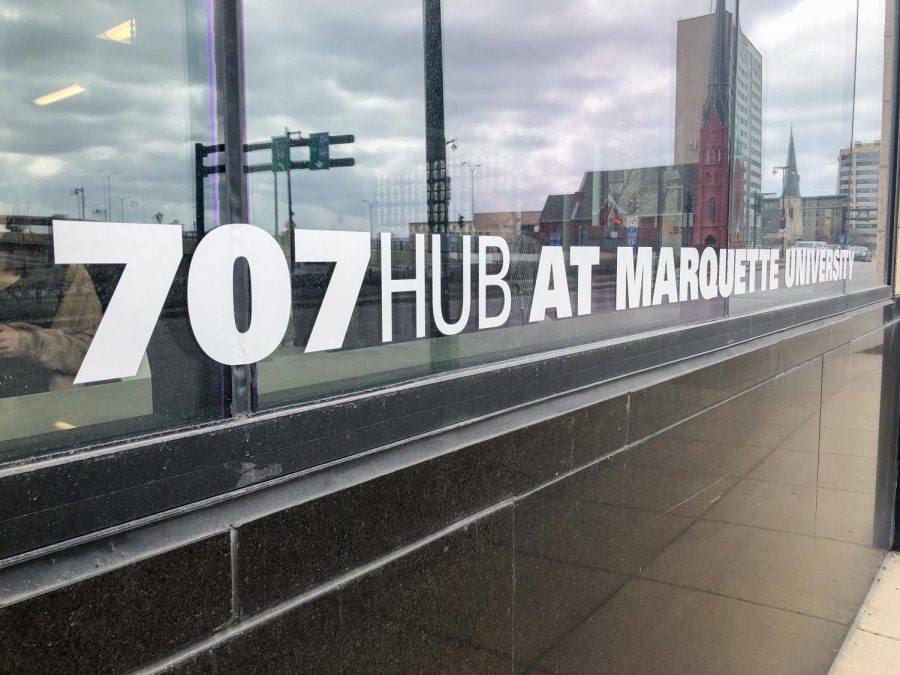Emily Smith, a senior in the College of Business Administration, was watching a movie when she heard the meek rattle of the doorknob at the front of her house. As invading moonlight slipped through the blinds and forced its way onto the walls and floor of the living room, Smith turned from her position, expecting to greet her roommate.
Instead, she was met by two armed men with masks on. As the reality of her situation flooded over her, she became paralyzed with fear.
“Not again,” she thought before being tied up.
This was the second break-in to Smith’s residence within two weeks. She was present for both robberies.
The first time Smith was robbed, two men broke in through the window and started stealing items. She did not interact with the men.
After the intruders had exited the house, Smith said she called the Marquette University Police Department immediately.
“I called MUPD and they showed up within five minutes and just asked for names, general information, and what items had been stolen and that was it,” Smith said.
Days later, officers called to inform her about mental health resources she could use to handle any anxiety she might have.
But after that initial contact, Smith said she heard nothing more.
Smith wanted to continue contacting MUPD but didn’t want to “feel like a nuisance,” and instead figured that they were probably busy. However, two weeks later, her apartment was broken into again. This time one of her roommates was home as well.
Nicole Tetzlaff, a senior in the College of Arts and Sciences, said that she and Smith were tied up in the second robbery and were forced to give up their valuables and sensitive information, such as credit card PINs and account passwords.
After an hour of intimidation and fear, the robbers finally left, and the pair of roommates called MUPD once again. Just as before, the students were questioned. This time, both students said they felt especially challenged and antagonized by investigating officers.
“Multiple officers asked us like eight to 10 times if we had locked the door,” Tetzlaff said.
Smith echoed the sentiment.
“Multiple cops looked me in the eye after I told them I locked the door and said ‘you didn’t lock the door,” Smith said.
Despite the perceived pressure from MUPD, both Tetzlaff and Smith confidently maintained that they did indeed lock the door — they communicated this idea a multitude of times to the officers, they said.
MUPD usually sends safety alerts via email or text to all students that seek to inform the recipients of the details of particular crimes that happen on campus. In spite of what the Tetzlaff and Smith told MUPD, the email that was sent out about their second break-in read, “Two suspects entered an unsecured residence,” which both girls told the officers was not true.
The email also questioned whether the suspects were armed, stating: “One of the suspects implied they possessed a weapon, but did not display one.” The email also did not mention that the girls had been tied up.
Tetzlaff and Smith said that the troubles with communication did not stop there.
“My work laptop had been stolen, and so I called multiple times to get a police report for insurance … It was just frustrating for me because I had to wait like three weeks to get something I felt could have been in a day,” Tetzlaff said.
This sentiment about communication was echoed by Smith, as she said that she was consistently calling MUPD to no avail and even left up to three voicemails before giving up on staying updated.
“Our case was handed to a detective and since then I still haven’t been about to get in contact with them … I’ve asked for updates on the case and every time I’ve contacted the liaison for the police department they said the detective was not willing to talk,” said Smith.
Personal possessions are one thing, but peace of mind is another. The latter was hard to find for the roommates after two break-ins and no communication with the police department that was investigating them.
Both girls felt so unsafe that they moved from the apartment.
“We did not spend a night in that apartment after the second robbery, we had to move to Emily’s parents’ house for the time being,” Tetzlaff said.
Eventually, all four girls who lived in the apartment moved out weeks after the incident and before their lease was up.
After a couple of days away from his car, Zach Hadzima, a Junior in the school of engineering, came back to his vehicle, parked on 20th St. and Kilbourne Avenue, to find that everything in it was either scattered or stolen. Hadzima decided to call MUPD.
“I called MUPD and of course they asked me what had happened, they started asking about description of items and I felt like it was going well and they gave me a case report and said that they would follow up and they never did,” Hadzima said.
After waiting for updates that would never come, Hadzima realized that his fate was not uncommon, as just in his building he knew of multiple other people who had either had their car broken into or stolen.
“Multiple times I would see people trying to open the doors of cars on the block of the break-ins and so I would call MUPD. If they came, it was too late as the people trying to break into the cars would run off,” Hadzima said.
A Pew Research poll indicated that for property crimes, only 18.9% of theft cases are ultimately solved. For burglaries and motor vehicle thefts, the statistics drop lower: 13.9% for burglaries and 13.8% for motor vehicle thefts.
Hadzima acknowledged that these crimes, as frequent as they may be on his particular street, are hard to solve, but he dovetailed off this by saying that the lack of communication that MUPD consistently has is what is most discouraging.
On top of this, Hadzima did have a second incident happen in his car.
“The second time that my car was getting broken into I called MUPD and started following the people who had broken in … once they came they seemed to be not taking it seriously and I was trying to tell them where the person had gone but they did not seem to be interested,” Hadzima said.
This tendency to not pursue leads for theft crimes is not unique either, as Sophie Bolich, a graduate student at Marquette, described a similar experience that she had with MUPD.
Bolich had her apartment broken into on one occasion and her bike stolen on another. On both occasions, Bolich was able to find either the stolen items and reported this to MUPD, but neither time was she able to retrieve these items.
“We traced the Internet IP address of the TV that got stolen to an address, and then we told MUPD and they said they would check it out, but I never heard back from them,” Said Bolich.
On the occasion when she found her bike Bolich said that she spotted her bike on campus and waited to confront the person who had stolen it.
“It was an old Walmart bike from 2006, how many of those could there be in Milwaukee, plus I knew it was my bike because the right brake was broken,” said Bolich.
Once she called MUPD to the scene she referred to the right break and make and model, all of which were found on the incident report that had been filed, and pleaded with MUPD that it indeed was her bike.
“I told the officer that this person had stolen my bike and the guy I confronted said he didn’t and the cop basically just ended up saying that it was his word against mine,” said Bolich.
In both cases, Bolich said that she was continuously reaching out to MUPD to get updates to no avail and that she would describe the bar of communication as “good at first but after that, it seemed that they did not care after the first talk.”
The Marquette Tribune reached out to MUPD multiple times telling them that they were working on a story centered around communication resources offered to students on campus. Each time MUPD either did not reply or said that they were too busy to comment for the story.


